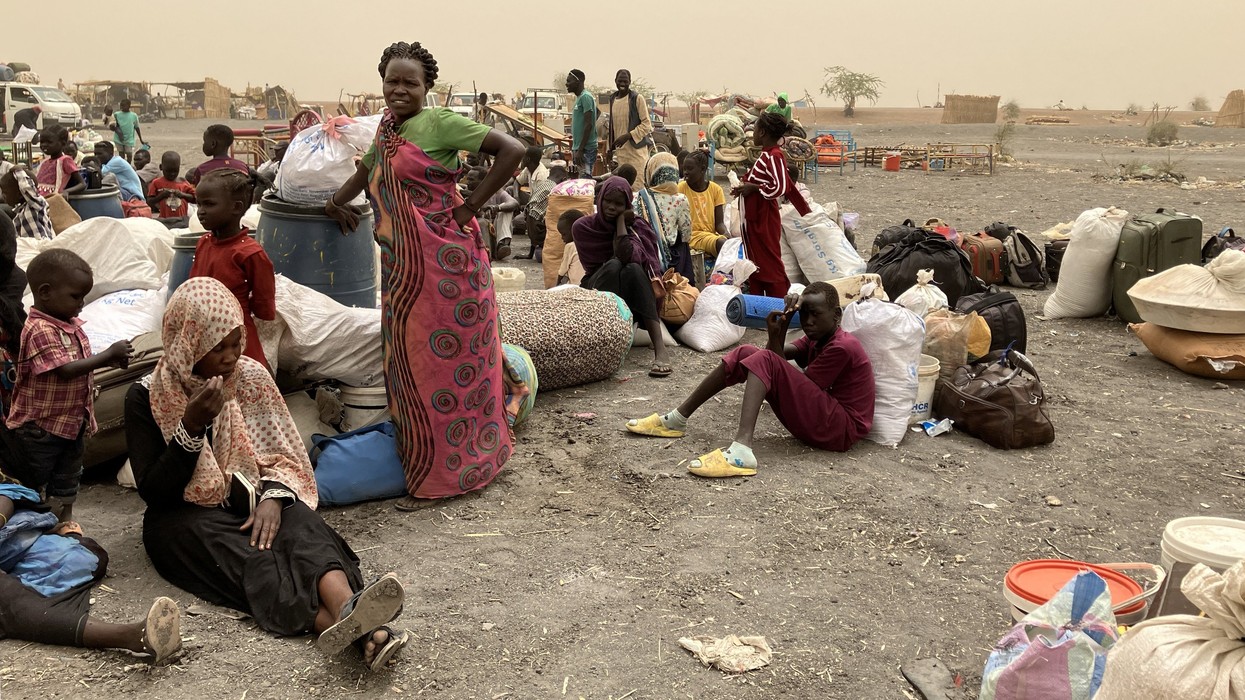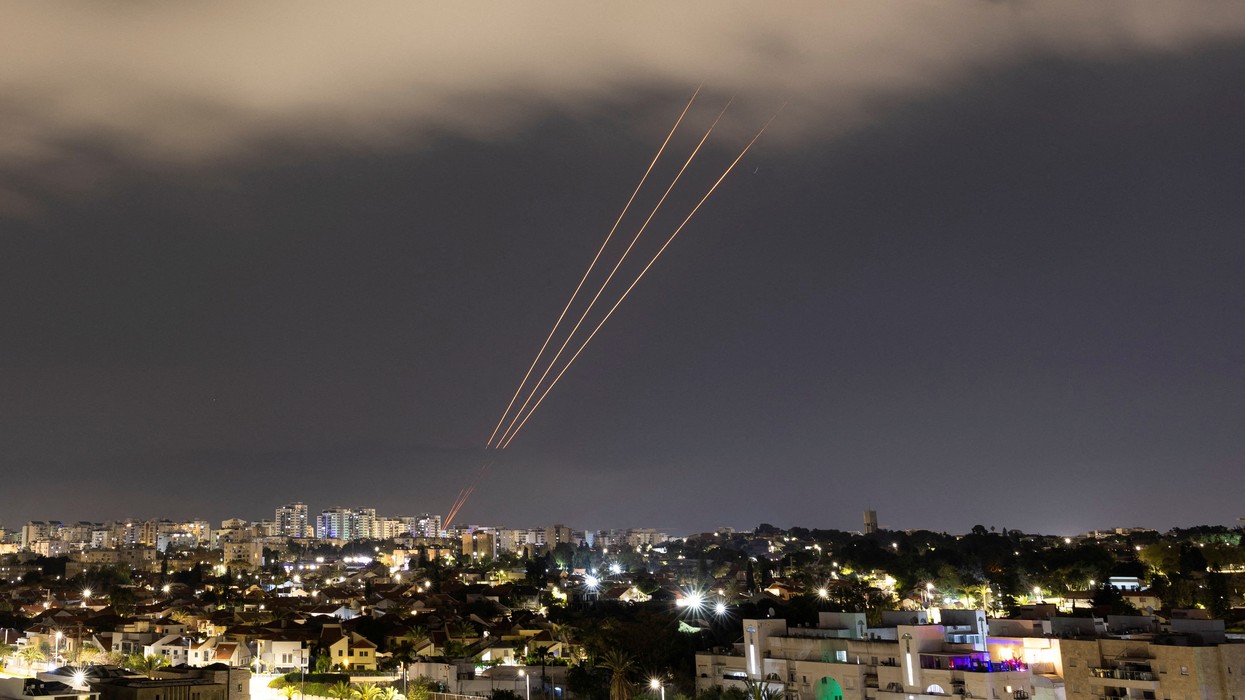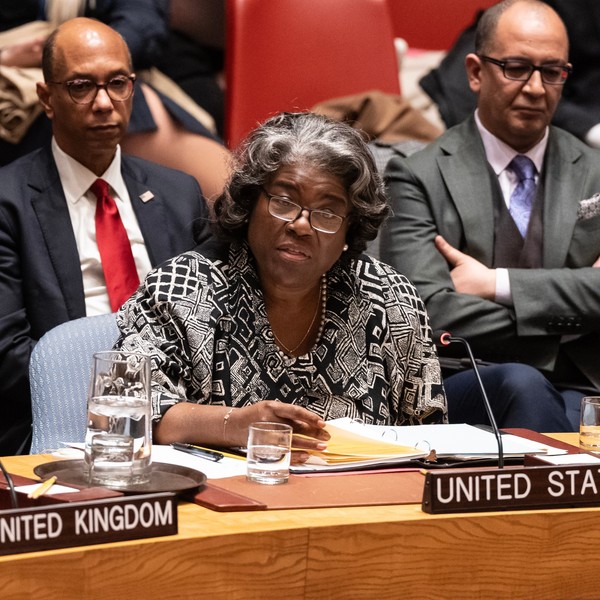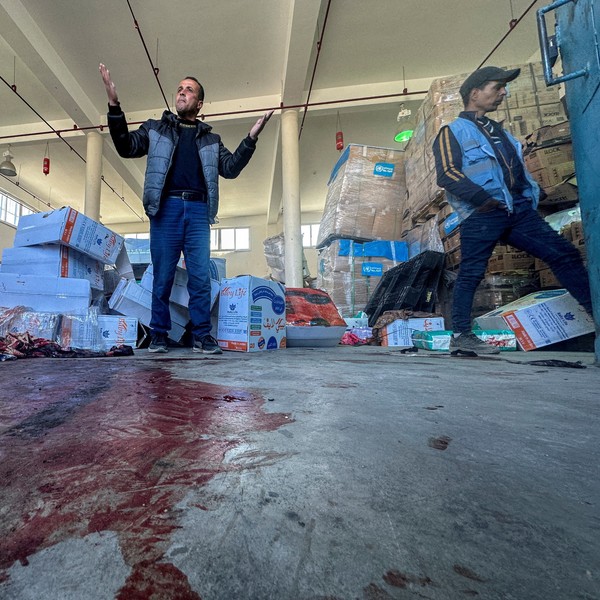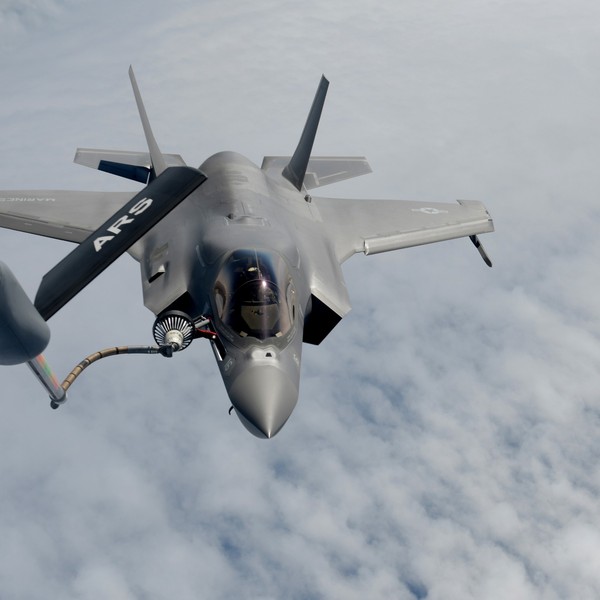Last week, Sudan agreed to normalize relations with Israel, making it the third Arab country to do so since August, in response to pressure from the United States. The normalization agreement, combined with similar deals with the United Arab Emirates and Bahrain, strengthen the Arab-Israeli alliance that the United States is building to assert its dominance in the region.
They also highlight the extent to which these Arab governments are fundamentally anti-democratic — accountable to their U.S. patron, not to the people they rule, who overwhelmingly oppose normalizing relations with Israel until it ends its military rule over Palestinians.
The agreements themselves reflect the absence of democracy in the region, but could they be used to recast the struggle against oppression in Israel and Palestine as part of a broader struggle for democracy in the Arab world? What would it take for this so-called betrayal of the Palestinian cause by Arab governments to pave the way for a new approach to human rights based on universal democracy and human rights, including the right to vote, for Palestinians, Israelis, Emiratis, and Bahrainis alike?
The interim Sudanese government agreed last week to normalize relations with Israel in exchange for U.S. agreement to remove Sudan from the list of state sponsors of terrorism, which would allow the impoverished country to access badly needed international aid and investment.
Normalization is unpopular among the Sudanese people, whose mass protests led to the ouster of military dictator Omar al-Bashir in 2019. By forcing the fragile transitional government to choose between obeying the expressed will of the people and lifting crippling U.S. sanctions, the United States has undermined Sudan’s attempt to transition to democracy.
But insistence on normalization with Israel has long been part of a U.S. policy to prop up compliant dictators in the Middle East and North Africa, providing them with the financial and military resources they use to crush dissent, in exchange for conformity with U.S. dictates, which include accepting Israeli domination over Palestinians.
Bahrain and the UAE signed the Abraham Accords with Israel last month, opening up opportunities for Abu Dhabi to purchase U.S.-made F-35 fighter jets. Such a sale would make the UAE the only MENA country, other than Israel, to own the advanced weaponry, though Qatar is reportedly now asking for its own.
Egypt and Jordan, which have fought in Arab-Israeli wars and have independent reasons to maintain diplomatic relations with Israel, signed peace deals with Israel in 1979 and 1994 respectively, and each receives generous U.S. financial and military assistance in return.
Yet 88 percent of people in Arab countries say they oppose normalization with Israel. The Emirati government has already arrested opponents of normalization and banned them from traveling.
The repressive governments of Bahrain, the UAE and, to a lesser extent, Sudan, are moving closer to Israel, but Israel is also moving closer to them in its undermining of freedom and human rights in its own country.
Israeli democracy has always been partial, rooted in the hegemony of Jews over Palestinians. The Israeli authorities control all of historic Palestine or the Biblical Land of Israel, between the Jordan River and the Mediterranean Sea, and they grant citizenship to all 6.5 million Jewish inhabitants. However, they allow just one third of the 6.5 million Palestinian inhabitants to vote, leaving Palestinian residents of Gaza and the West Bank with no say over the government that controls their lives.
Even the minority of Palestinians who are citizens of Israel face deeply discriminatory laws and policies that privilege Jewish Israelis over Palestinians and prevent Palestinian refugees from returning to their homes.
Furthermore, the government of Prime Minister Benjamin Netanyahu has increasingly imposed more autocratic measures on all of his people, not only Palestinians. Facing corruption charges, he has subjected institutions such as the judiciary and the police to political interference, and used the coronavirus pandemic to crack down on demonstrations, to spy on citizens, and to beat and arbitrarily arrest Jewish protestors.
The normalization agreements thus clarify the intentions and legitimacy of the Arab and Israeli governments involved. Their signatures essentially say: We oppressive governments will not let religion or ethnicity divide us, because we have so much in common in our quest to maintain power, backed by U.S. money, weapons, and diplomatic support.
That clarity is sobering, but it also helps to contextualize the struggle for human rights in Israel and Palestine as part of a broader struggle, to democratize the Middle East and end U.S. policies that keep autocratic governments in power.
The Palestinian leadership reacted to the normalization agreements by accusing the Emirati and Bahraini governments of betraying the Palestinian struggle for liberation from Israeli military rule. Yet these autocratic governments were never friends of the Palestinian people, any more than they were friends of their own people. The illusion of Arab or Muslim solidarity against Israeli or Jewish domination has obscured the more important fault line that runs throughout the MENA region: the rift between autocratic governments, propped up by the United States, and the people whose rights they suppress.
The growing number of countries establishing diplomatic ties with Israel — additional Arab governments are expected to follow — can and should strengthen a growing trend to redefine the struggle for Palestinian rights as part of a larger, region-wide struggle for democracy and human rights, including the right to vote.
This need not prejudice the right to self-determination of Palestinians or of Israeli Jews. It simply recognizes that nearly half of the inhabitants of Israel and Palestine are excluded from the elections that determine who governs them, and they have a right to participate in a democratic process to select their leadership.
These are long-term processes, but it is worth mentioning two groups that are leading in that direction: the One Democratic State Campaign, a group of Palestinians and Israelis advocating for a secular state in which all citizens have equal rights, and Democracy for the Arab World Now (DAWN), the advocacy group where I am a consultant, founded by slain Saudi journalist Jamal Khashoggi, that pushes for the United States to stop preventing democracy in the Middle East and North Africa.
Some human rights groups have already shifted their approach to Israel-Palestine, from a call to end the Israeli occupation, to a call for democracy, equal rights, and accountability for U.S. support for the Israeli government. The normalization trend just might strengthen those voices, and establish democracy as the only legitimate norm for Israel/Palestine, too.

